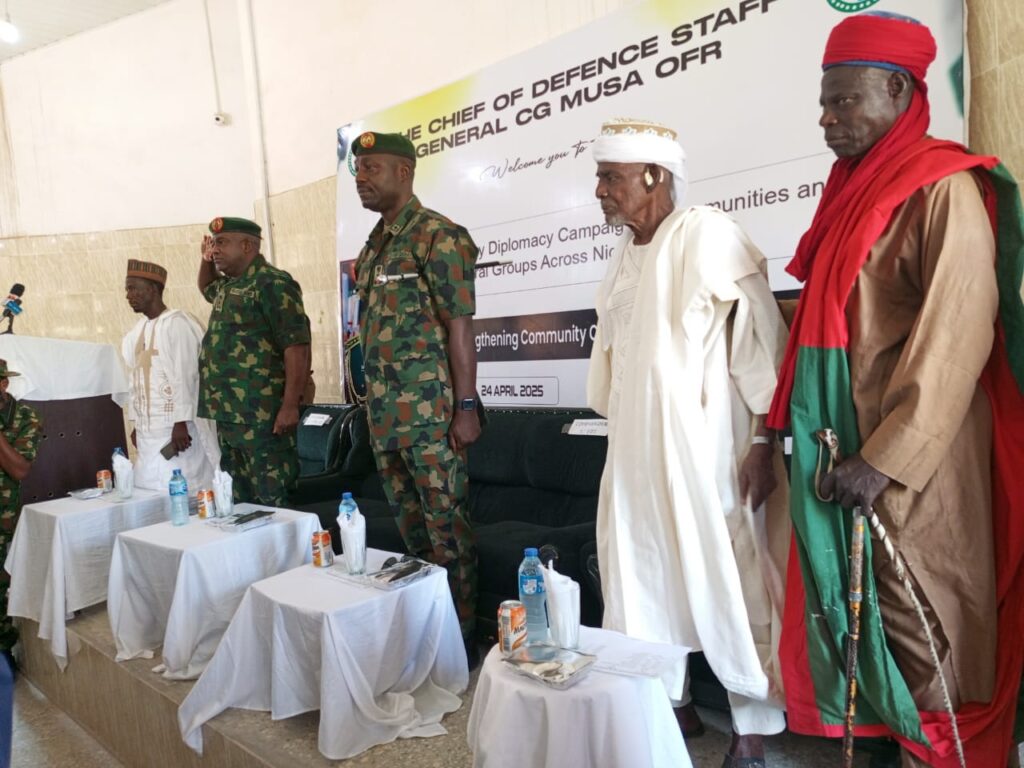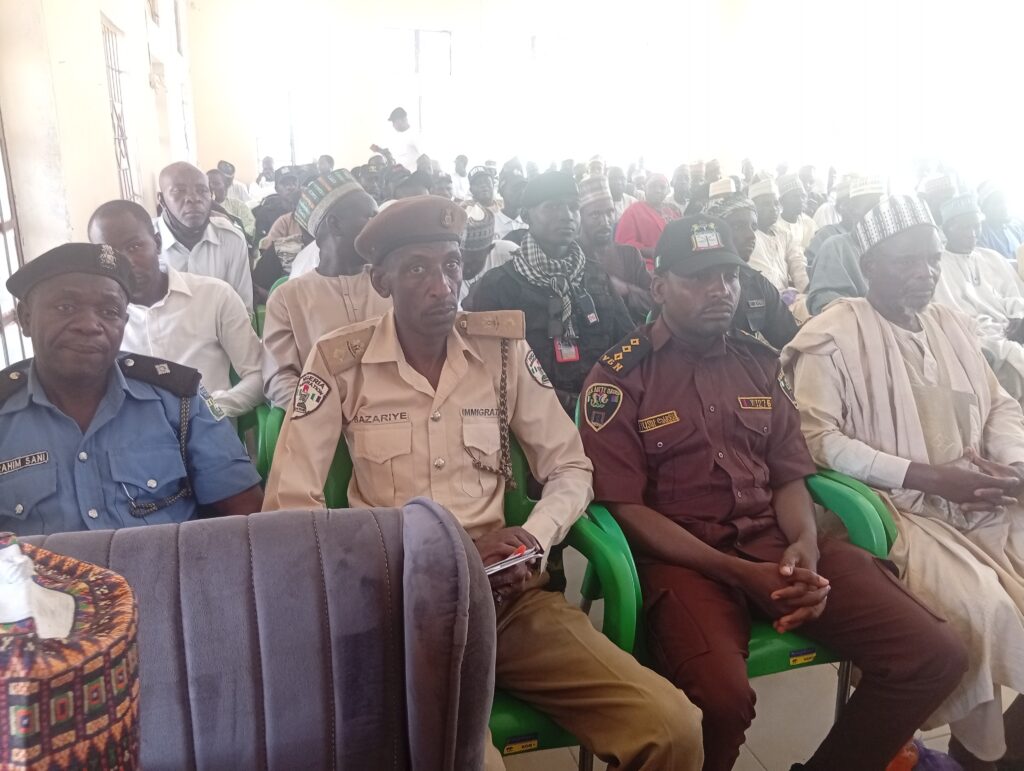
By Victor Akaa
Human activities are gradually returning to the once-troubled landscape of Katsina State, previously marred by the scourge of banditry that haunted its rural communities. Today, the darkest days are beginning to fade, as rays of hope pierce through the shadows. The combined efforts of the people and the government are steadily reclaiming peace and stability.
A delegation from the Defence Headquarters, led by Brigadier General Mohammed Abu-Mawashi, recently visited Batsari and Dutsin Ma Local Government Areas to assess the situation and interact with residents in areas previously ravaged by insecurity.
The team observed signs of recovery: markets once shuttered due to fear of attacks are now reopening, and displaced residents are returning to their ancestral homes.

In Batsari, for instance, economic and commercial activities are gradually bouncing back. The proposed Tran-Saharan Skills University—established by former Minister of Agriculture, Babangida Abba Ruma—is poised to resume operations after years of abandonment due to security threats. The university, along with critical infrastructure such as schools, hospitals, and markets, was deserted at the peak of the crisis. However, military-led peacebuilding efforts under a non-kinetic strategy are beginning to restore normalcy.
The Defence Headquarters’ visit was part of a nationwide campaign—Military Diplomacy to Communities and Cultural Groups Across Nigeria—with the theme: “Strengthening Community Cooperation for National Security.” During the visit, military representatives engaged with local leaders and residents to better understand the challenges they faced under bandit rule.
On the kinetic front, the Nigerian Army’s 17 Brigade, under Brigadier General Babatunde Omopariola, has recorded significant success in counter-bandit operations. Encouraged by these gains, the Chief of Defence Staff, General Christopher Musa, is now complementing combat efforts with strategic non-kinetic approaches for sustained peace.
Brigadier General Abu-Mawashi , who is the Deputy Director Directorate of Defence Media Operations, highlighted that the military’s non-kinetic initiatives in the Northwest are yielding tangible results. In Zamfara State, for example, peace dialogues between Fulani herders and Hausa farmers—facilitated by the military—have curbed retaliatory attacks and revived farming. Similar efforts in Katsina have prompted some repentant bandits to surrender their weapons and undergo reintegration.
He further stated that the military has rolled out humanitarian relief initiatives, medical outreach programs, and infrastructural rehabilitation—particularly in education. Schools across Katsina and Kaduna States have been renovated, and vocational training programs in tailoring, welding, and agriculture have been introduced to reduce youth vulnerability to recruitment by criminal groups.
Brigadier General Abu-Mawashi also noted the accomplishments of Operation HADARIN DAJI and Operation FANSAN YAMMA, which have resulted in the neutralization of 1,770 bandits, the arrest of 3,073 suspects, and the rescue of 2,515 civilians. Additionally, 1,085 firearms and over 11,600 rounds of ammunition have been recovered.
Hashim Bello, Vice Chairman of Batsari Local Government, described the bandits’ hit-and-run tactics, which often left behind death and the theft of livestock. He expressed appreciation to the military for its timely responses and growing cooperation with local communities.
“We have truly suffered, but we thank the Army for their consistent support,” Bello said. “Whenever attacks occur, they respond swiftly. We are hopeful for a brighter future, Insha’Allah, because of the Army’s commitment to our safety.”
District Head of Wagini, Dikko Ma’azu, also emphasised the need for systemic solutions, suggesting ranching as a means to mitigate farmer-herder conflict. He called for the implementation of grazing reserves and settlement programs such as the Ruga Orange Settlements, arguing that open grazing contributes significantly to local disputes.
Ma’azu acknowledged marked improvements in security over the past six months and urged residents to support ongoing peace efforts by reporting suspicious activities. He praised the Army for engaging directly with community stakeholders.
Many community leaders and residents expressed gratitude to the military, noting that a growing number of displaced persons have returned home and even reconciled with former bandits who have chosen to embrace peace. However, they voiced concerns about bandits still crossing into their villages from neighbouring Zamfara State and urged the military to intensify border patrols.
A field journalist with Enugu Reporters echoed these sentiments, stating that while Katsina had long suffered under the weight of banditry, there is now a genuine sense of hope.
He cited the root causes of the crisis—poverty, unemployment, and neglect—but noted that military operations have decimated several bandit enclaves, eliminating high-profile leaders and allowing displaced families to return.
In some areas, local peace deals with bandit groups have created a fragile but valuable calm. The state government has distributed ₦985 million in support to over 2,000 victims, and international partners have begun contributing to long-term peacebuilding initiatives.
Across the state, farmers had abandoned their land, schools were shut, and communities became ghost towns,” he said. “But with coordinated military efforts including airstrikes and ground assaults, hope has returned.
In places like Batsari and Dutsin Ma, displaced families are reclaiming farms, restarting businesses, and sending their children back to school. Crops are once again growing, laughter echoes in classrooms, and market stalls are bustling.
